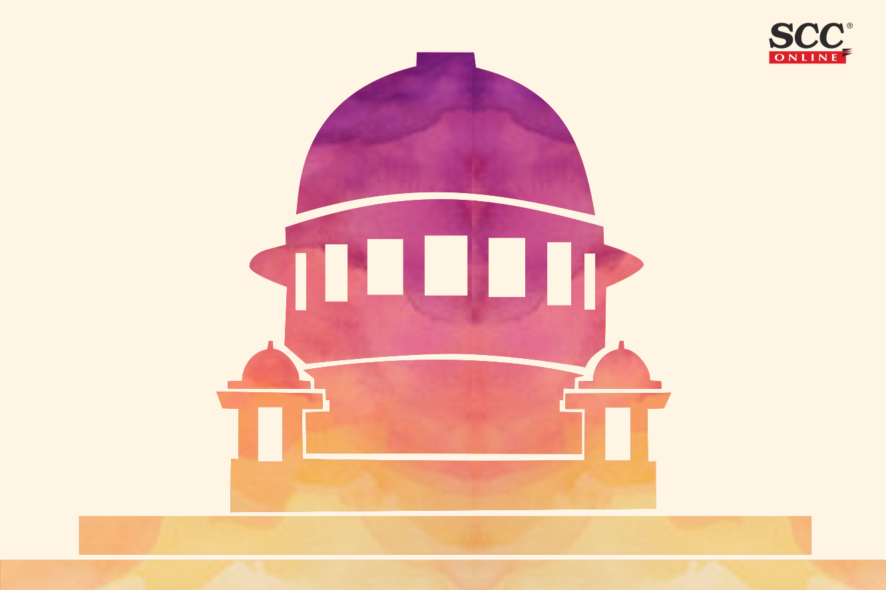Supreme Court: The 3-Judges Bench comprising of L. Nageswara Rao, Sanjiv Khanna, B.R. Gavai*, JJ., held that when parties deliberately put their agreement into writing, it is conclusively presumed that they intended the writing to form a full and final statement of their intentions, and one which should be placed beyond the reach of future controversy, bad faith and treacherous memory.
“It would be inconvenient that matters in writing made by advice and on consideration, and which finally import the certain truth of the agreement of parties should be controlled by averment the parties to be proved by the uncertain testimony of slippery memory.”
Factual Fulcrum
The partnership firm in question, i.e. M/s Selwel Combines was constituted in the year 1986 vide Partnership Deed dated 30-10-1992. As per the 1992 Deed, the plaintiff 1 was to have 50% share in the profits and losses of the partnership firm. It was however provided in the 1992 Deed, that if the plaintiff 1 fails to bring in an amount of Rs.50,00,000 as his capital contribution to the partnership firm on or before 31-03-1993, his share in the profits and losses of the partnership firm would be only to the extent of 10%.
Noticeably, vide the Deed of Amendment of Partnership dated 18-08-1995, the partnership firm was again reconstituted, whereby the plaintiff 2, son of the plaintiff 1, and defendant 6 to 11 were inducted as partners and defendant 12 to 16 were admitted to the benefit of the partnership firm. Learned counsel further submits that as per the 1992 Deed, the plaintiff No.1 was entitled only to 10% share in the profits and losses of the partnership firm since he failed to invest an amount of Rs.50,00,000/( Rupees Fifty lakh). By the 1995 Deed, the plaintiff No.2, who is son of the plaintiff No.1, came to be inducted and the 10% share of the plaintiff No.1 was to be divided amongst them. However, inadvertently, it came to be mentioned in the 1995 Deed that the plaintiffs will have 25% share each.
Dispute
The instant suit was filed by the plaintiffs for rendition of accounts and for releasing a sum of Rs.5,48,06,729, being their 50% share in the profits of the partnership firm. The Trial Court had held that the plaintiffs together were entitled to 10% share in the profits and losses of the partnership firm till 18-06-2004, and that from 18-06-2004, they were expelled partners of the partnership firm. The appeal against the impugned order was dismissed by the Karnataka High Court.
Findings
Though the 1992 Deed had provided that the share of the plaintiff 1 in the profits and losses of the partnership firm was 50% and it will be reduced to 10% in the event the plaintiff 1 does not contribute an amount of Rs.50,00,000 towards capital of the partnership firm, there was no such stipulation in the 1995 Deed, as the 1995 Deed clearly provided that the plaintiff 1 and the plaintiff 2 would be entitled to 25% share each in the profits and losses of the partnership firm. The Bench observed that if it was the case of the defendants that the terms mentioned in the 1995 Deed were inadvertent or a mistake in fact, then the burden to prove the same shifted upon the defendants. The Bench remarked,
“The contention of the defendants, that the share of the plaintiff Nos. 1 and 2 in the profits and losses of the partnership firm, mentioned as 25% each, is by mistake and, in fact, is only 5% each, does not sound logical and reasoned. If it was by mistake or inadvertence, nothing precluded the defendants from rectifying the same between 1995 and 2004.”
The Bench opined that what had happened between 1992 and 1995 was exclusively within the knowledge of the parties as, though the plaintiffs had averred that an amount of Rs.50,00,000 was invested by the plaintiff in the intervening period, the same was denied by the defendants. Therefore, in view of Section 91 of the Evidence Act, the Bench held that the evidentiary value of the 1995 Deed would stand on a much higher pedestal, as against the oral testimony of the parties.
“The written contracts presume deliberation on the part of the contracting parties and it is natural that they should be treated with careful consideration by the courts and with a disinclination to disturb the conditions of matters as embodied in them by the act of the parties.”
Hence, the Bench concluded that Trial Court as well as the High Court had erred in holding that the plaintiffs together were entitled to only 10% share in the profits and losses of the partnership firm till 18-06-2004. However, with regard to the challenge of the appellants to their expulsion from the partnership firm the Bench held that perusal of clause 17 of the 1992 deed would reveal that the partners had right to expel an erring partner/partners on the grounds specified therein. Since the 1995 Deed did not have any conflicting provision, it was held that the clauses in the 1992 Deed, which are not superseded by the 1995 Deed, would still continue to operate.
In the light of the above, the Bench declared that the plaintiffs together were entitled to 50% share in the profits and losses of the partnership firm till 18-06-2004. [V. Anantha Raju v. T.M. Narasimhan, 2021 SCC OnLine SC 969, decided on 26-10-2021]
Kamini Sharma, Editorial Assistant has put this report together
Appearance by:
For the Appellants: Advocate R. Basant
For the Defendants: Advocate Balaji Srinivasan
*Judgment by: Justice B.R. Gavai








[…] Written instruments entitled to much higher degree of credit than parol evidence; Old partnership de… […]